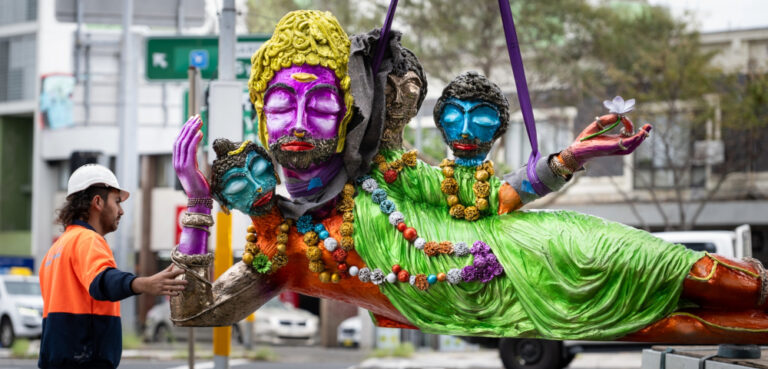
Meet Tricia Paoluccio, The Star of the Dolly-Approved Dolly Parton Musical ‘Here You Come Again’

Tricia Paoluccio is one of the very, very few people in the world who has the distinct honour of receiving Dolly Parton’s stamp of approval on her COVID-19 lockdown project, Here You Come Again.
While the rest of the world was baking sourdough and working from home in pyjamas, Paoluccio and her husband Gabriel Barre created a two-person tribute show for the legendary country singer — one that eventually fell in the lap of Dolly Parton herself.
The show is named after the first Dolly song Paoluccio ever heard as a child, in her father’s office on their farm in Modesto, California.
Tricia Paoluccio on becoming Dolly, right down to the perfect Tennessean drawl
She tells me about her parents typing out the lyrics for her so she could sing the song again and again — “I just listened to it so many times that I memorised every crackle and scratch and the way she says her words” — and halfway through the sentence, her accent slips effortlessly into Dolly’s Tennessean drawl.
It’s somewhat jarring hearing a disembodied Dolly Parton voice on the other end of the phone, but it speaks to the effort Paoluccio has taken to provide audiences with a Dolly experience that is as authentic as humanly possible. Working with renowned dialect coach, Erik Singer, Paoluccio dissected the way Dolly shapes her vowels, the tiny quirks that would be hard to pick up on to the layman, but make a world of difference on stage.
“I think my vocal cords warped to be like hers or something,” she says. “At this point, it’s quite natural for me to sing like her. And it’s so deep in my soul that I just think of her, and she kind of comes out.”
Paoluccio has already taken Here You Come Again across the United States and the UK before landing in Australia, and her portrayal of Dolly onstage is something she takes very seriously.
“For many people, they won’t be able to go see Dolly Parton in person,” she says. “So I feel like the goal of the show is to have people feel like they got to be with Dolly Parton in a real life way for two hours.”
“[Dolly is] so deep in my soul that I just think of her, and she kind of comes out.”
The show follows 40-something-year-old Kevin, who has moved back into his childhood bedroom after breaking up with his boyfriend at the height of the pandemic. Magically, Dolly Parton appears to him — a gay fairy godmother of sorts, or perhaps an eternally optimistic Ghost of Breakups Past — to help him through what he feels is the lowest moment of his life.
“The story is of Dolly being such a strong figure in a person’s life, almost representative of their… highest consciousness,” Paoluccio says. “The part of their thoughts that says no, it’s going to be okay, even when it doesn’t feel like it,”
Dolly’s terminally sunny disposition is just as iconic as her voice, wigs, and outfits, and while it should have run its course by now, hearing sweet nothings in Dolly’s tooth-achingly sweet accent still fixes your heart a little bit.
The experience of struggle: Why everyone naturally loves Dolly Parton
Parton grew up as one of twelve children in impoverished Appalachia, and it was this upbringing that would go on to shape so much of her work, both the musical and philanthropic kind. Country music is notoriously full of tragedy and much of Dolly’s early discography speaks to struggle — but not only her own, but that of her community.
“It’s much easier to hear somebody who’s been through a lot say, ‘hey, it’s going to be okay. Just have faith, you know, buckle down’,” says Paoluccio. “I think that that’s what makes her such a great messenger of an uplifting, spiritual message, because she’s not somebody who’s lived a materialistic, perfect life.”
For Paoluccio, it’s the lived experience behind Dolly’s attitude that really makes her words and songs hit home.
“A huge part of her appeal and her down to earth quality is that she did have her struggles growing up and that she’s incredibly grateful for all the good that she has. She’s not entitled. She doesn’t think the world owes her anything.
“Every day she’s so grateful for the opportunities that she’s been given because she really did it herself.”
You can learn more and buy tickets to Here You Come Again at hereyoucomeagain.com.au.

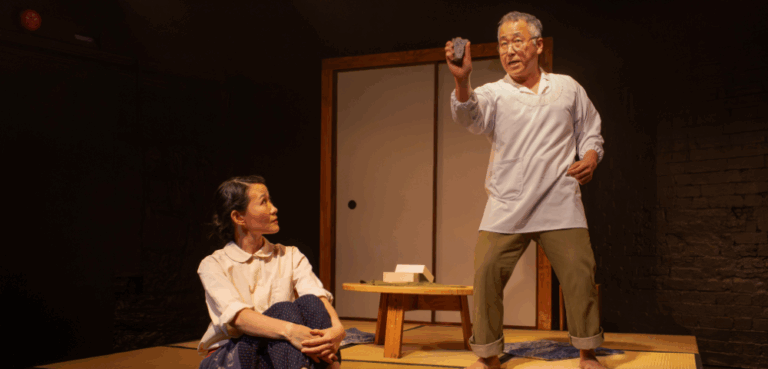
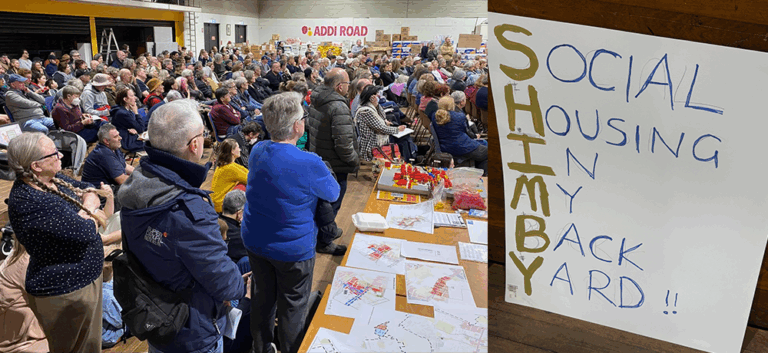

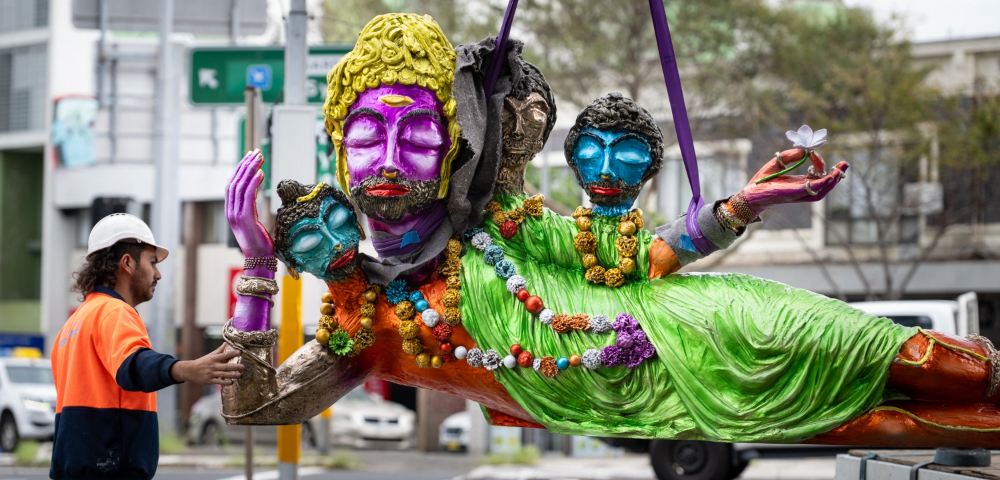
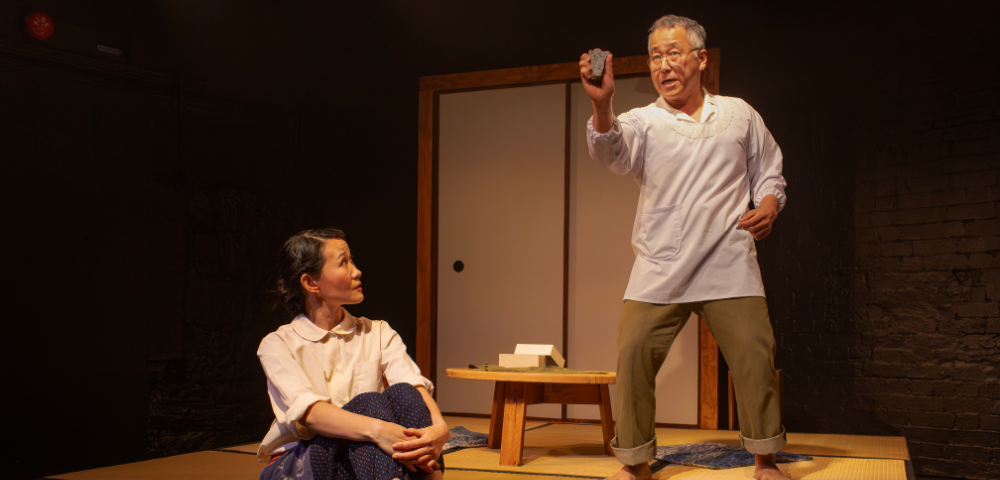
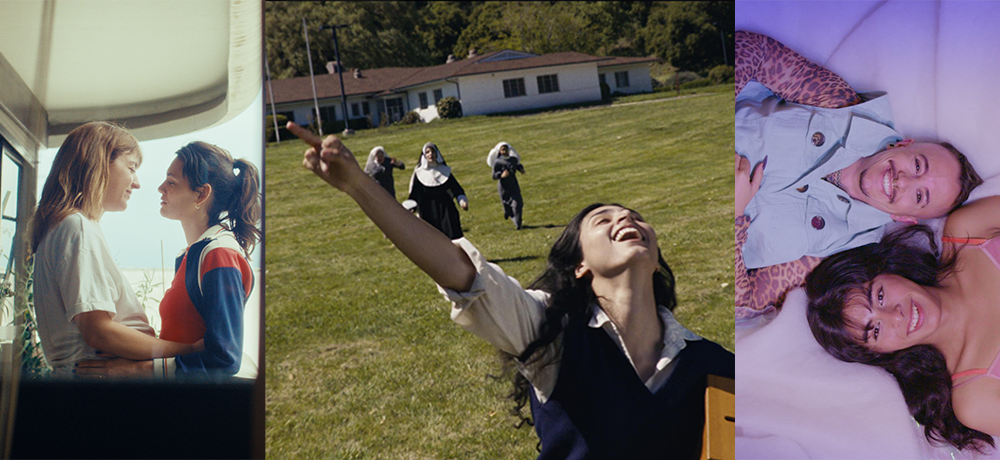

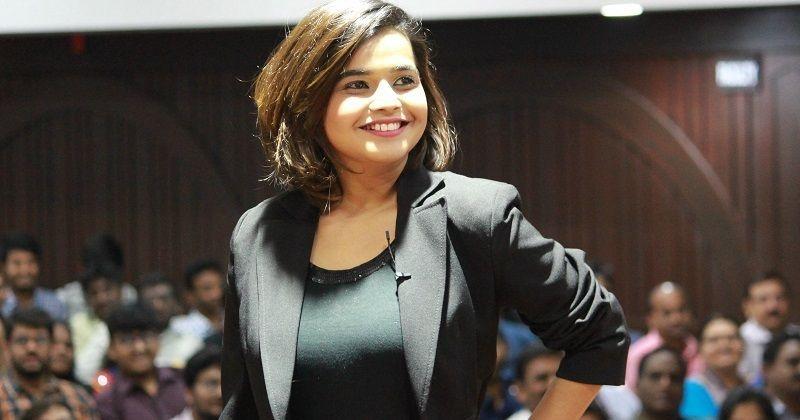

Leave a Reply